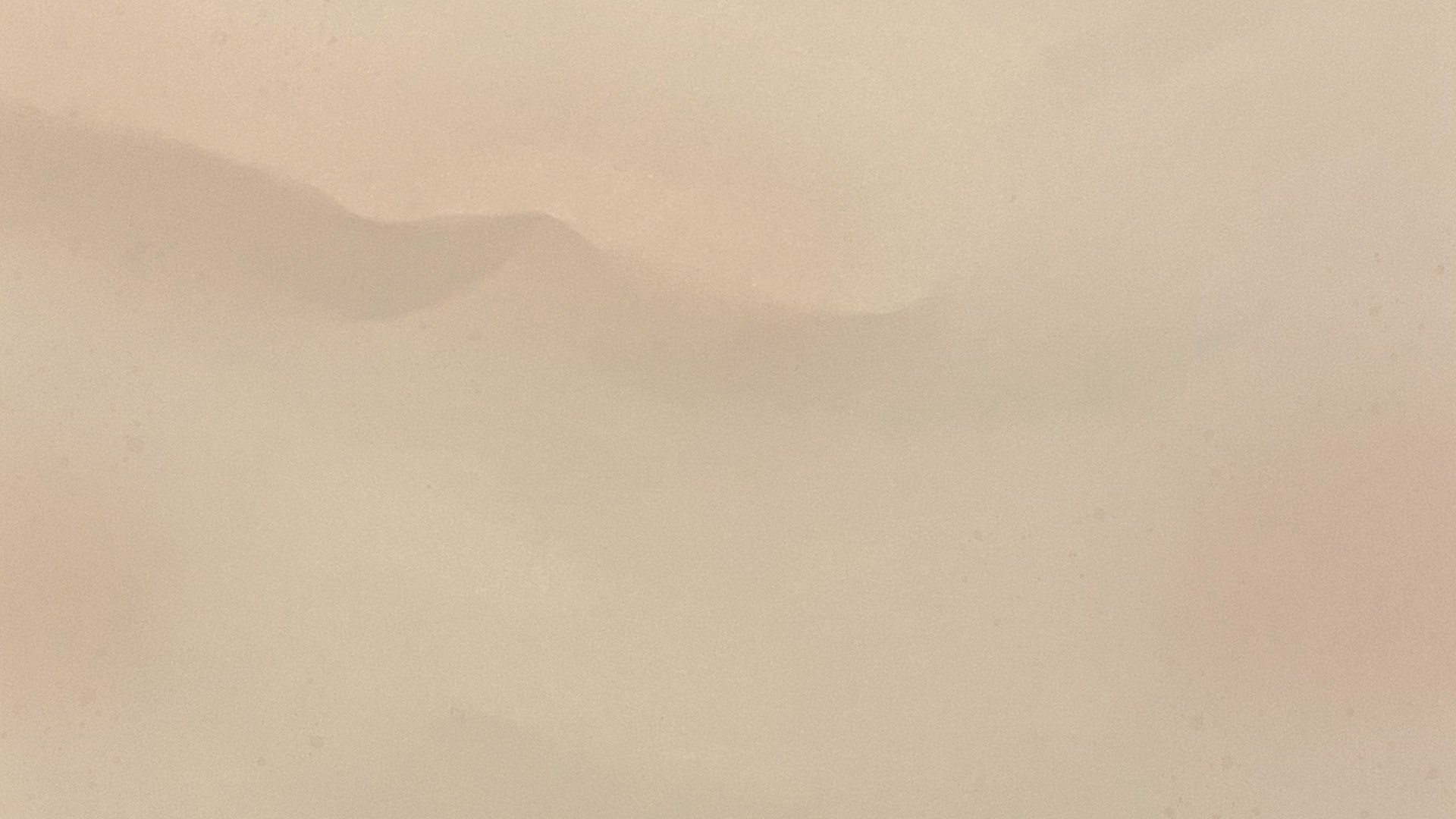
The Story of War Stories
It started as a class assignment. It grew into a workshop. It ended fully staged.
Nothing good ever happens after midnight.
My mother has told me that time and time again and now, I have one example, one moment in time, that refutes that statement.
It was after midnight when one of us, my director or myself, slipped up. We had been talking about the Workshop, about what we could make it look like with the limited time we had. One of us, gripped with the usual delirium that takes hold after three in the morning, said, “Well, in the Studio we could –”
And then the living room got very quiet.
And then the next morning I had started drafting up a proposal.
The Studio production of War Stories has simultaneously been the process I am most emotional about, and the process I am the least involved in. The play is in a state that I am proud of, so there was no dire need for tweaks or rewrites during the process like there was in the Read-Through and Workshop. The team working on this process had grown as well. I had very little in the way of other responsibilities because people took up what was needed for this process to succeed and for this story to be told. I was simply lucky enough to get to watch it. My story was given life and form and space to grow and change and evolve thanks to them. Thanks to everyone who has helped to tell it. I have listed each production team to show how this story has grown, to record who along the way has lent their voice to my tale.
The Studio production of War Stories can be a thousand things. It is to me.
What is also is, though, is a reminder that something very good happened after midnight.
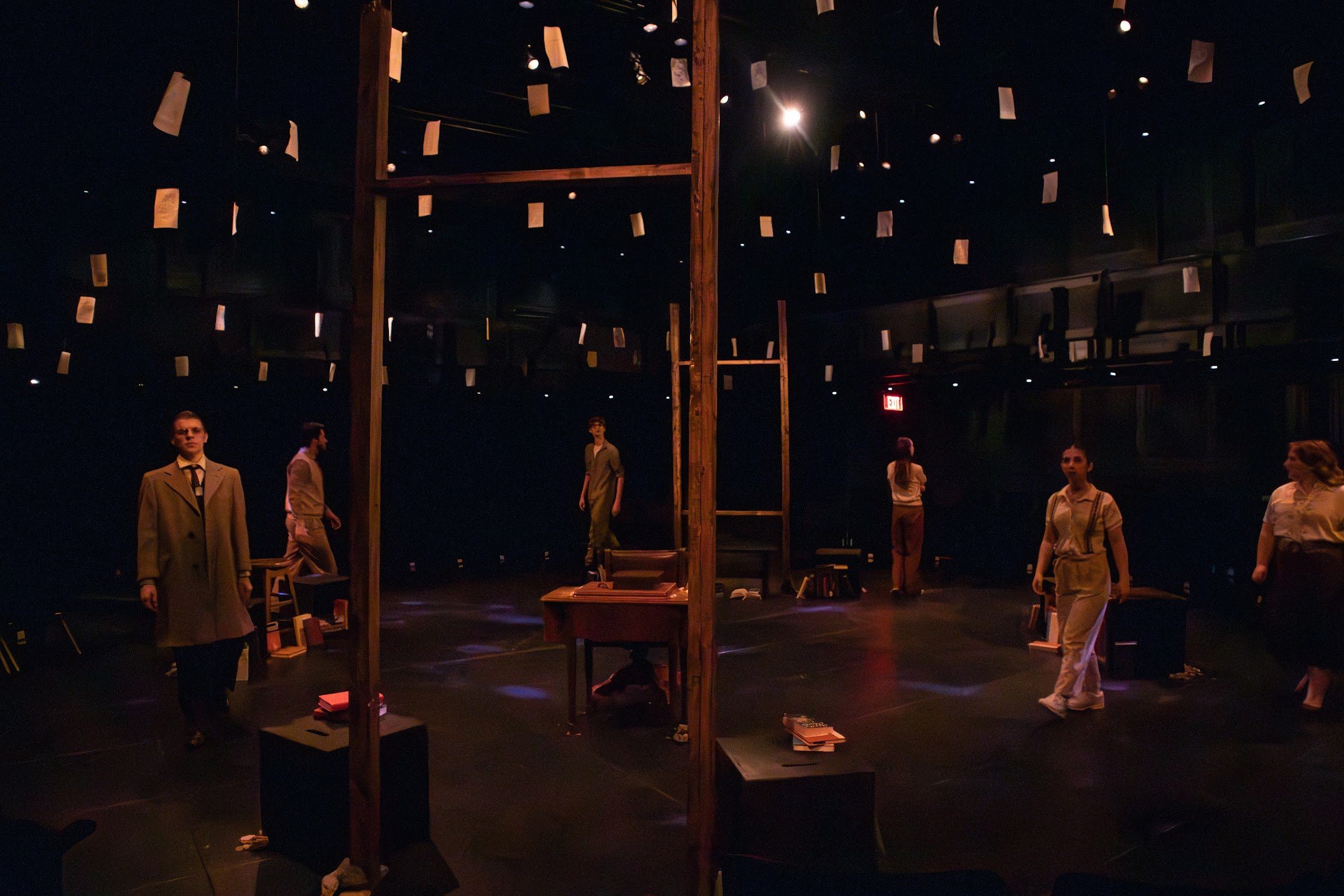
You are a story that deserves to be told.
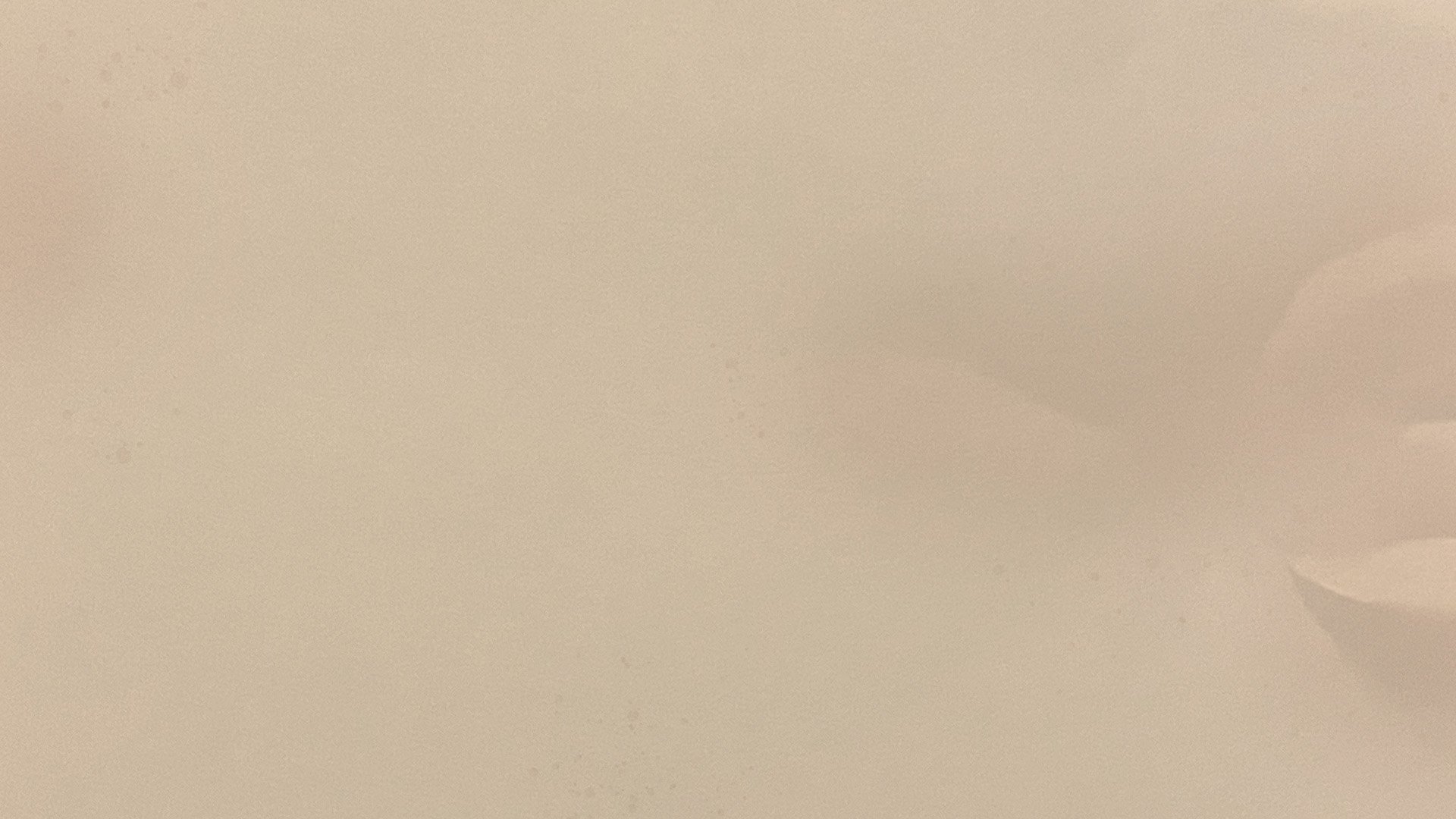
The steps we took to the Studio Theatre
-
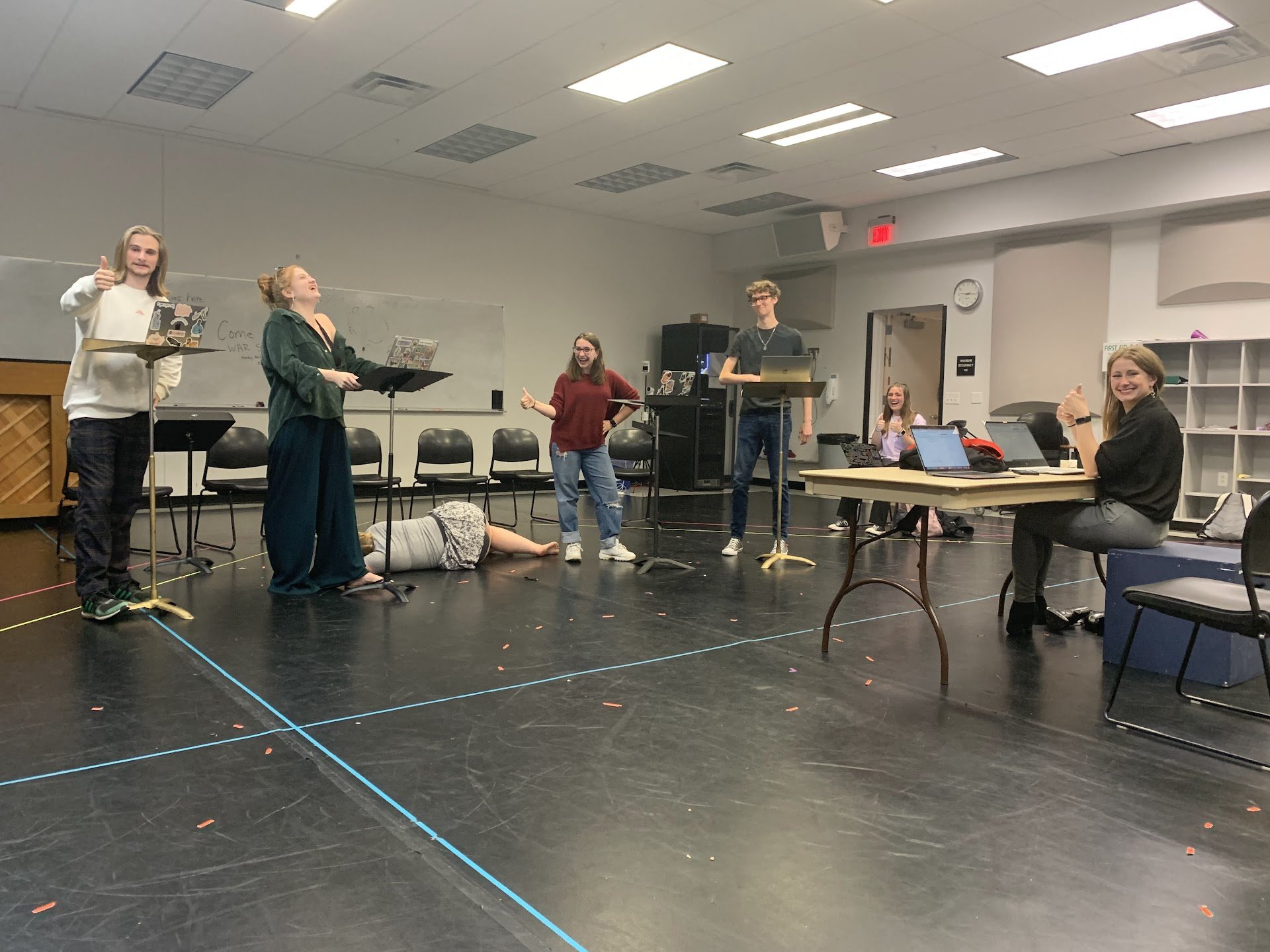
Read-Through
This all began as a class assignment.
The Spring of 2023’s Advanced Playwriting class’ final assignment, to be precise.
We had to write a full-length play over the course of the semester, and I settled on two errant ideas that, when I combined them into one, I affectionately named War Stories.
This version of War Stories, the Read-Through, took on a remarkably different form when compared to its two newer versions. This version contained two acts, a hole in a wall, and characters who were all from the same place. You will not be seeing any of these things in the current production. Do not worry about missing anything; I changed them for a reason.
The Read-Through was another part of this class assignment. It was a way for the Advanced Playwriting students to have their work directed by a director and to hear it be acted by actors. Our class was focused on the writing aspect of playwriting, the Read-Through was focused on the play aspect. I was beyond lucky to have one of my roommates at the time, Anna Christensen, step forward to direct. She was the first person to show me what War Stories looked like on its feet, and that was the first time I thought this play had the potential to be more than just a class assignment.
-
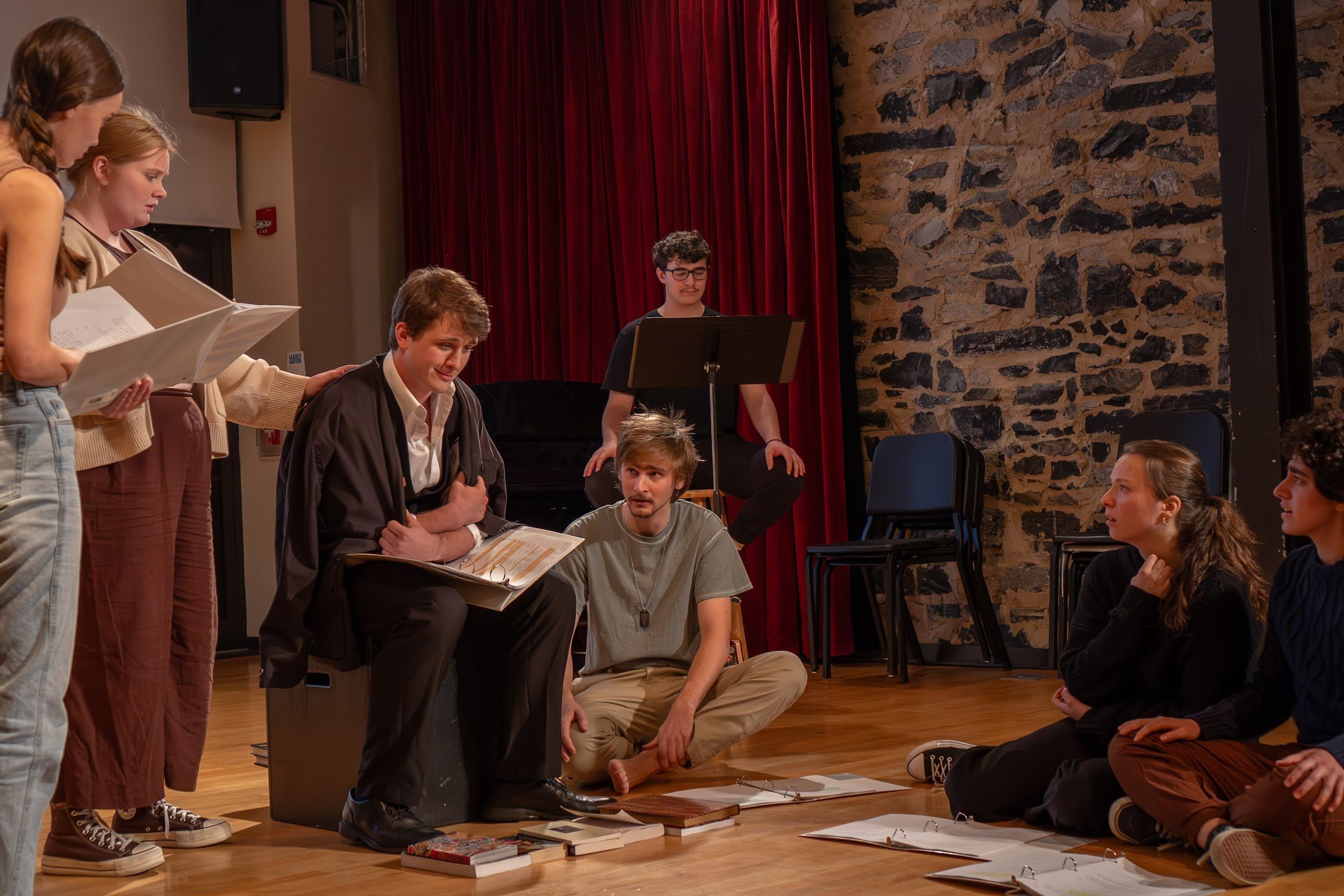
Workshop
It was an offhand remark that led me here.
I was chatting with a friend before a class, and mentioned that I hoped to have War Stories make an appearance in the Studio Theatre in the Spring, but that that was, effectively, next year’s problem. Matthew looked at me like I had grown a second head, and informed me of the School of Theatre and Dance’s policy that every new work that goes up in the Studio must have had a Workshop in the previous semester.
I now had a time limit.
I rewrote War Stories in what felt like a daze. It became a one-act, with a relatively solid set that would not collapse, and characters who had nothing in common but their place in the bookstore. This is mostly the current version of War Stories. This story had now taken the first steps away from a class assignment to being a passion project.
The Workshop fell into clearer view one evening in my house after class. My roommate, Malik Jallow, offered to direct the Workshop. Initially, I thought it came from a place of pity, as until that moment I had been lying on the floor moaning about the possibility of directing this play. But as we talked, and he began to write emails, and draw up schedules, and discuss how I would fit into and benefit from the process, I realized it came from a place of passion. Passion is what drove the War Stories Workshop, what led to a mere twenty-nine hours reducing me to a giddy, weepy mess on a Friday evening and Saturday afternoon. I learned so much during those twenty-nine hours, but what has stuck out to me the most about the Workshop, is that passion is what can turn an offhand remark into the opportunity of a lifetime.